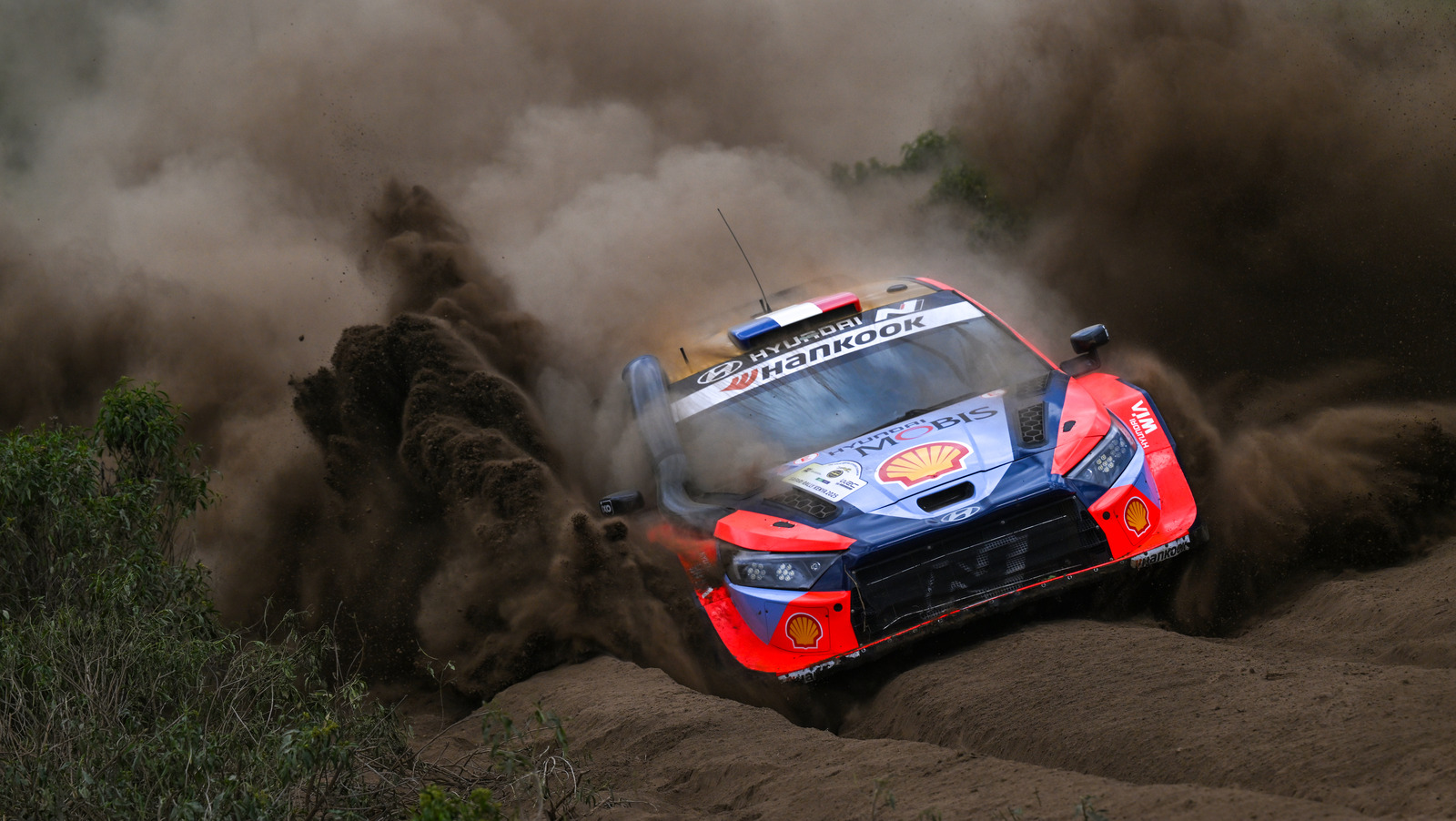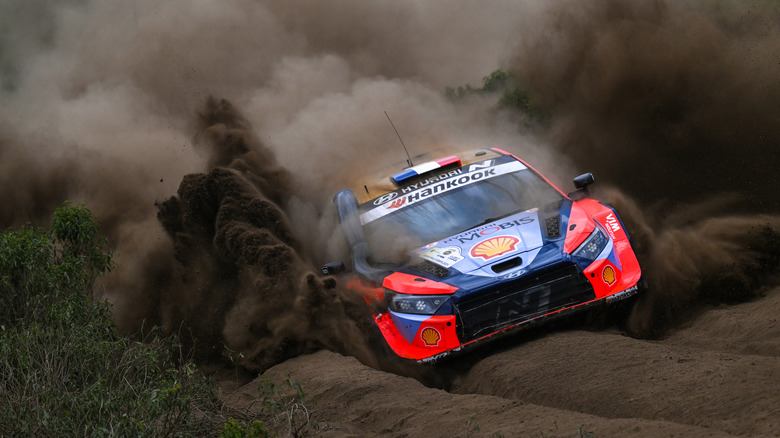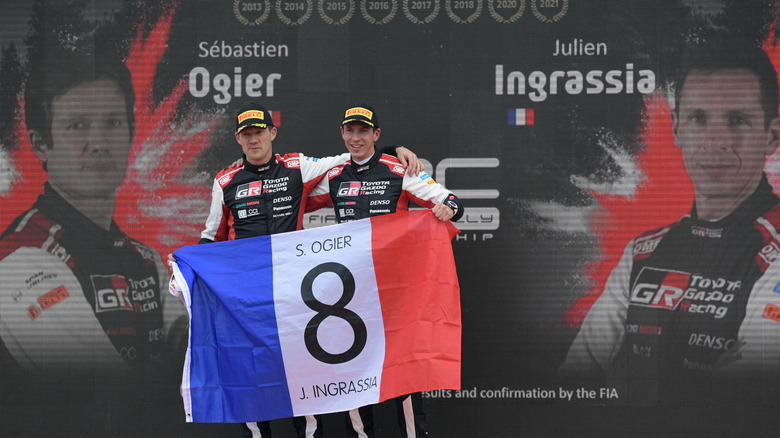The sudden prohibition of swearing across international motorsport was met with universal disapproval, but protests from within the FIA World Rally Championship led to a boycott of stage-end interviews. The championship’s drivers and co-drivers reached an agreement this week with the FIA, the sport’s global governing body, to partially lift the ban on profanities and bring back the TV interviews. The compromise will allow competitors to swear to their heart’s content as they hurdle down forest trails and mountain roads.
Tensions over the ban reached a boiling point after Hyundai driver Adrien Fourmaux said, “We f**cked up yesterday,” after Rally Sweden’s final stage in February. The Belgian driver was fined $34,000 by the FIA. The rally steward suspended $21,000 of the fine for 12 months because he publicly apologized and English isn’t Fourmaux’s native language. However, the cat was out of the bag. Everyone in the garage now knew how steep the fines could be for swearing. In response, the WRC’s competitors formed the World Rally Drivers Alliance (WoRDA), an association directly inspired by F1’s Grand Prix Drivers’ Association.
Swearing is back, but criticisms of the FIA aren’t
The protests began with the drivers refusing to speak or solely responding in their native non-English languages at Safari Rally Kenya. With the WRC’s commercial struggles, it was clear that the FIA would quickly go to the table with WoRDA. According to Autosport, the compromise splits rallies into two areas: controlled and uncontrolled areas. Julien Ingrassia, WoRDA chair and eight-time World Rally Champion co-driver, explained:
“The controlled zone, which can be press conferences, media pen and media zone, those places where drivers can have much cooler heads, is where the Appendix B [of the International Sporting Code] is applied from A-Z.”
“There are then uncontrolled zones which are the stage-end interviews, the radio communication and the stage itself as we know drivers can have a bad reaction if you hit a rock or whatever.”“These zones are uncontrolled, and of course, as long as we just speak about swear words and not violence or gross misconduct, we agreed a bit like in Formula 1 like when drivers speak to their team via radio communications they are not punished for any swearing.”
As Ingrassia mentions, this is the same solution that the FIA quietly implemented in Formula 1 to temper backlash. However, the current rules still harshly penalize dissent against race officials, as we saw last weekend after the Saudi Arabian Grand Prix. Max Verstappen openly stated, “I cannot share my opinion, after he was asked about his opening lap five-second time penalty. It’s clear that if the FIA and President Mohammed Ben Sulayem wants to shut down profanity or criticism, drivers are ready and willing to be maliciously compliant.




